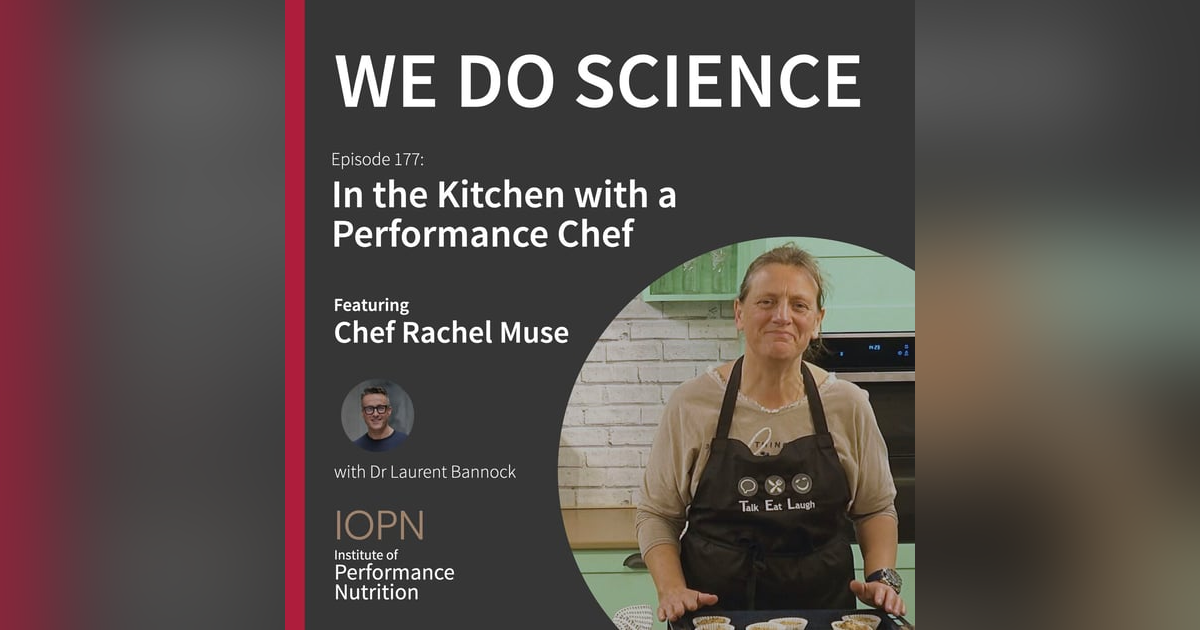Oct. 14, 2022
"In the Kitchen with a Performance Chef" with Chef Rachel Muse

Episode 177 of the Institute of Performance Nutrition's "We Do Science" podcast! In this episode, I (Laurent Bannock) discuss "In the Kitchen with a Performance Chef" with Chef Rachel Muse (Talk Eat Laugh, UK).
Discussion Topics Include:
- Chef Rachel's journey from studying mathematics to becoming a highly trained chef: from luxury hotel "haute cuisine" to working as a private chef to elite football players
- The private performance chef's perspective on performance nutrition: "science to plate" and client experiences that performance nutritionists should be aware of
- "Passing the baton": from nutritionist to chef as part of the athlete's support team
Podcast Episode Transcript: Download PDF Copy
Key Paper(s) Discussed / Referred to:
- N/A
Related Podcast Episodes:
- This is the first interview with a performance chef, with more planned!
Check out our other podcasts, publications, events, and professional education programs for current and aspiring sports nutritionists at www.TheIOPN.com and follow our social media outputs via @TheIOPN







